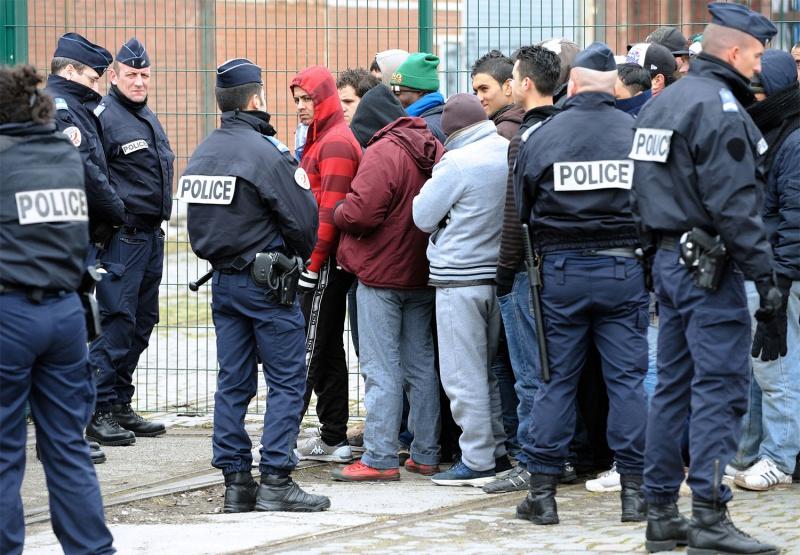
The French right-wing opposition intends to put pressure on the government on the issue of immigration, by demanding in the National Assembly to cancel the Franco-Algerian agreement concluded in 1968, and agree to basic laws approved in the National Assembly, the Senate, or by referendum that are in violation of bilateral agreements or European law, which is what the presidential camp described as “Frexit” in the field of immigration.
The two proposals were included at the top of the list of the National Assembly’s agenda for Thursday, December 14, allocated to the “Republicans” bloc (right), which counts about sixty deputies out of 577.
French media indicate that although the two proposals are likely to be rejected, the right seeks through them to embody real “firmness” on immigration issues in the eyes of public opinion, according to what was reported within the bloc.
By presenting a draft resolution calling for “the French authorities to cancel the Franco-Algerian agreement dating back to December 27, 1968,” the Republicans caused confusion within the presidential majority.
Such a text, if approved, would not be binding, but representatives from the Renaissance presidential bloc were not opposed to sending a “signal” to Algeria by reviewing the favorable status granted to its citizens in terms of conditions of movement, residence, and work in France.
After internal debate, party vice-president Marie Lebec explained that the group “ultimately joined the majority position of voting against it” even if “we all agreed that the agreement no longer worked.”
On the other hand, representatives of the “Horizons” party, which was founded by former Prime Minister Edouard Philippe, intend to differentiate from the position of their allies in President Emmanuel Macron’s party, by voting for the proposal.
The bloc’s leader, Laurent Marcangeli, explained that this position was adopted “in full agreement with the words of Edouard Philippe,” who himself called for this review in June.
The agreement, signed in 1968 at a time when the French economy was in need of a workforce, stipulates granting Algerians privileges, especially excluding them from laws related to immigration. They can stay in France under a “residence permit” but not a “residence card”.
They can also reside freely to practice an independent business or profession, and obtain a ten-year residence permit more quickly than nationals of other countries.
Republican representatives consider this to be equivalent to an “automatic right to immigration” at a time when a government bill, which is expected to be further discussed in the National Assembly, aims to better “control immigration”.
Lebec believes that issuing a parliamentary resolution “is meaningless. It is an insult directed at Algeria at a time when our relations have improved in recent months.”
In the face of the “trap” set by the right, as a government source put it, a source in the Renaissance Party said that the executive authority will be able on Thursday to “present its position” on this issue, expecting to engage in “renegotiation.”
With the second proposal, Republicans will confirm once again that enacting immigration laws will not produce results without constitutional reforms, which deputy Patrick Hetzel described as “the foundation.”
Republicans are demanding that the scope of the referendum be expanded to include any draft or basic law, including immigration issues.
The draft, which was rejected when it was studied in a committee, also stipulates the imposition of an “integration” criterion for immigrants to obtain French citizenship, the suspension of the right to citizenship by birth in Mayotte, one of the French overseas departments in the Indian Ocean, and the imposition of immigration quotas set by Parliament.
The main aim of the bill is to allow basic laws passed in the National Assembly, the Senate or by referendum, to be in contravention of bilateral agreements or European law.
The presidential camp that opposes such measures denounced “Frexit in the field of immigration,” a term inspired by Brexit and meaning a French departure from the European consensus.





